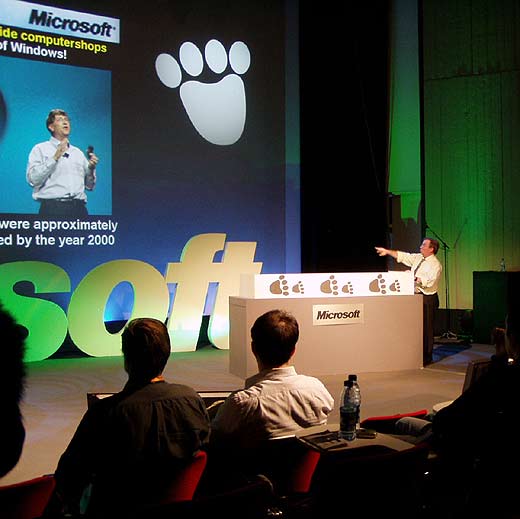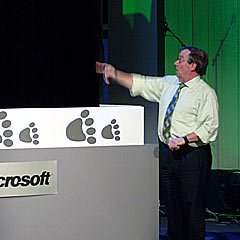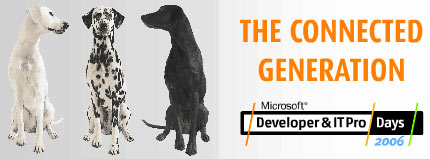At Microsoft event, Dutch trendwatcher talks about converging technologies

Rob Creemers
But the technological evolution continues. Barcodes will be replaced by RFID chips. Soon, those chips will be present in the crust of the cheese you're eating and in the cork of the wine you're drinking. By 2015, about 900 billion food items will be RFID tagged, and 824 million livestock will have more sophisticated, expensive tags attached to their ear or implanted in them. Tiny IP-enabled devices will be everywhere. This "smart dust" will track everything, from cars on the road to fish in the ocean. Forget hardware and software: the new kid in town is called "everyware". Nanotechnology will take this one step further, like in preventing bacteria growth in refrigerator coating. We will soon see a nanotechnology revolution, like we saw a plastics revolution in the 1930s. Information technology, biotechnology and nanotechnology will converge. Our homes will become fully digital, with broadband providing for audio, video, TV and internet. The internet protocol will swallow everything, as AT&T's Hossein Eslambolchi predicts. Intelligent, "ambient" devices will be everywhere. And with broadband everywhere, companies will have to rethink the role of face-to-face meetings.

Web 2.0 will be big. Dan Bricklin, creator of the first spreadsheet Visicalc, has launched wikiCalc, a Web 2.0 spreadsheet application. The next web phase will be focused on collaboration, "mass cooperation across time and space". These Web 2.0 applications will be the Lego bricks, creating mashups that present existing information in totally new ways. Together with mobile devices, the new web will show you where your friends are, anytime, any place. Wal-Mart recently enlisted bloggers in their PR campaign. But do you know which company Wal-Mart is really afraid of? Google! With its technology, Google will soon be able to tell shoppers people through their java-enabled phones where to find the best bargains and the cheapest shops nearby. The big internet companies are speeding up their spending, with Amazon doubling its outlays in 2005 compared to 2004, and Google almost tripling: there's a big race going on for market domination and for being the first in new technologies.

But our world is facing two big problems: ageing and globalization. Europe is ageing fast. Between now and 2050, the total population of the European continent will decrease by about 100 million. Africa's population over the same period will double from 800 million to a projected 1.7 billion. In Finland, Germany, Italy and the Netherlands, the number of women in their early forties who are childless approaches 20 percent. In The Washington Post, Robert J. Samuelson announced "The End of Europe". It's hard to be a great power when your population is shriveling. By the middle of the 21st century, every highly developed industrial society in the world will be a health care economy.





Reacties
E J
dinsdag, 23 juni, 2009 - 09:26yawn
bernard
woensdag, 8 maart, 2006 - 18:02Just have a look at prof. Luc Soete's efforts in MERIT, Maastricht ( NL):
http://www.merit.unu.edu/